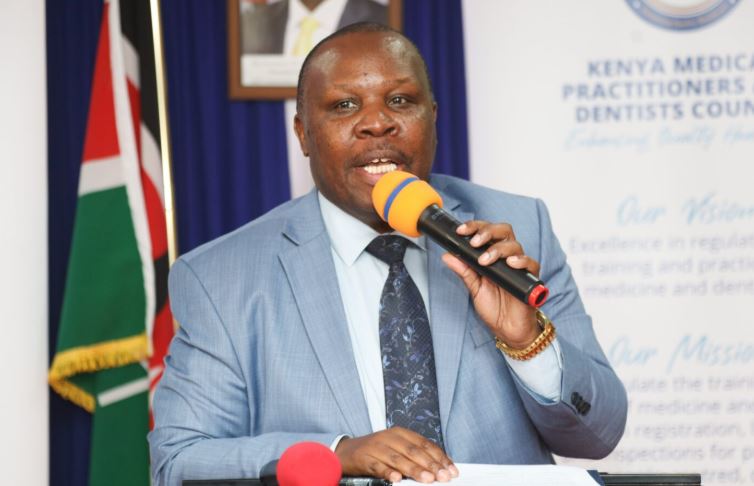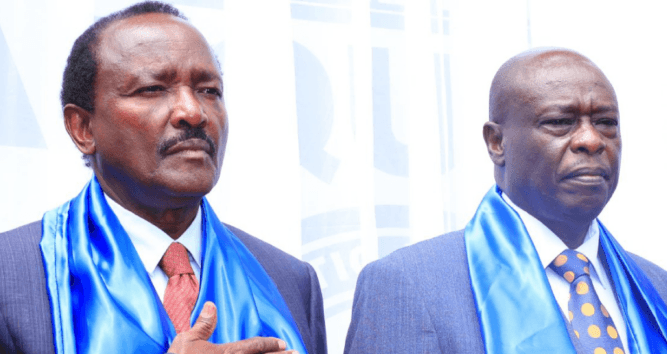
 Kenya Medical Practitioners and Dentists Council (KMPDC) Chief Executive Officer Dr. David Kariuki\FILE
Kenya Medical Practitioners and Dentists Council (KMPDC) Chief Executive Officer Dr. David Kariuki\FILEThe Kenya Medical Practitioners and Dentists Council (KMPDC) has reaffirmed its commitment to safeguarding public health by rigorously inspecting and licensing health facilities across the country.
In a statement, KMPDC Chief Executive Officer Dr. David Kariuki emphasised that inspections are central to upholding healthcare quality standards in Kenya.
“This process is crucial in preventing patients from receiving care in unsafe conditions that may lead to infections, misdiagnoses, or substandard treatment,” he said.
Kariuki noted that inspections assess key parameters including infrastructure, medical equipment, and availability of qualified personnel.
KMPDC inspectors are authorised to enter medical premises, engage with staff, and review operational records to ensure compliance with ethical and professional norms.
“This oversight helps reduce risks such as malpractice, overcharging, or procedures conducted outside a practitioner’s scope,” he added.
The licensing process, which complements inspections, ensures that only qualified professionals and institutions are allowed to operate.
KMPDC enforces the Inspections and Licensing Rules (2022), established under the Medical Practitioners and Dentists Act (CAP 253), which mandate adherence to minimum safety and operational standards.
“Licenses must be renewed annually. Where a facility fails to meet required standards, the Council may suspend or revoke its license, which may also affect associated operational privileges,” Kariuki explained.
“Importantly, facilities that are closed or downgraded are not permanently barred,” he added, indicating a pathway for compliance and reopening.
In March 2025, the Council began a nationwide phased inspection campaign targeting health facilities across all counties.
So far, this effort has resulted in the closure of 728 facilities in Mandera, Nairobi, Wajir, Kisii, and Nyamira counties.
Additionally, 301 facilities were downgraded, and 31 individuals were arrested for operating in violation of regulatory standards.
According to KMPDC, the closed facilities commonly lacked basic infrastructure, including dedicated spaces for maternity, pharmacy, or laboratory services. Some exhibited poor sanitation, insufficient water supply, and inadequate waste management systems.
Alarmingly, in several instances, unregistered or unauthorised individuals were found offering medical services.
The downgraded facilities, while allowed to continue operating at a lower level, were cited for deficiencies such as nonfunctional medical equipment, lack of essential supplies, and inadequate staffing.
Many did not have key personnel, including doctors, clinical officers, nurses, or pharmacists, required to operate at their licensed level.
Kariuki reiterated that the Council’s efforts are aimed at strengthening the credibility of Kenya’s healthcare system while protecting patients from avoidable harm.
“Our mission is to ensure every Kenyan receives safe, ethical, and professional care,” he said. “By enforcing these standards, we aim to build a health system that the public can trust.”










![[PHOTOS] Ruto launches Rironi-Mau Summit road](/_next/image?url=https%3A%2F%2Fcdn.radioafrica.digital%2Fimage%2F2025%2F11%2F6f6601a6-9bec-4bfc-932e-635b7982daf2.jpg&w=3840&q=100)




